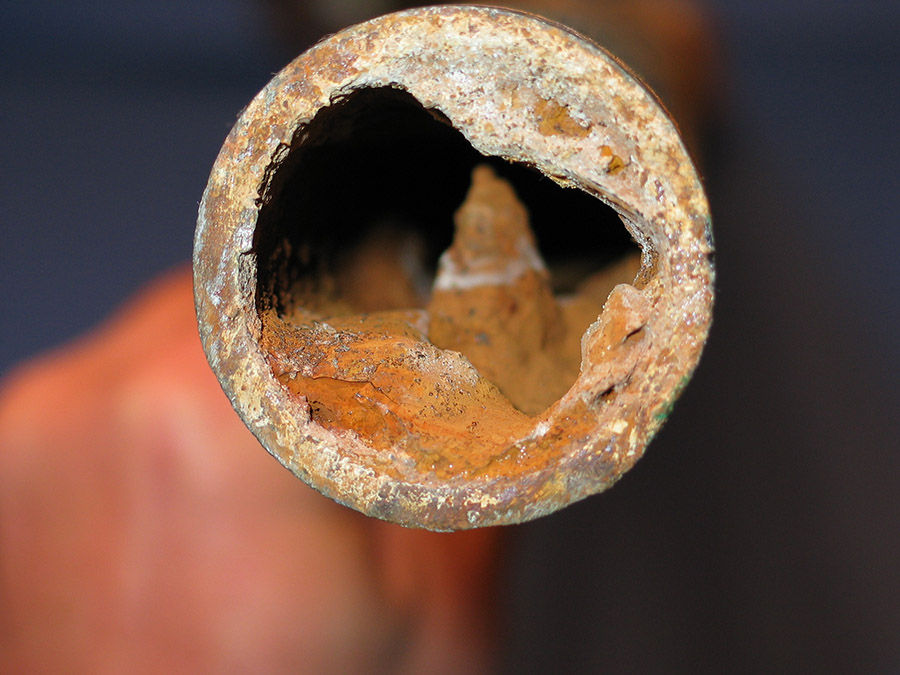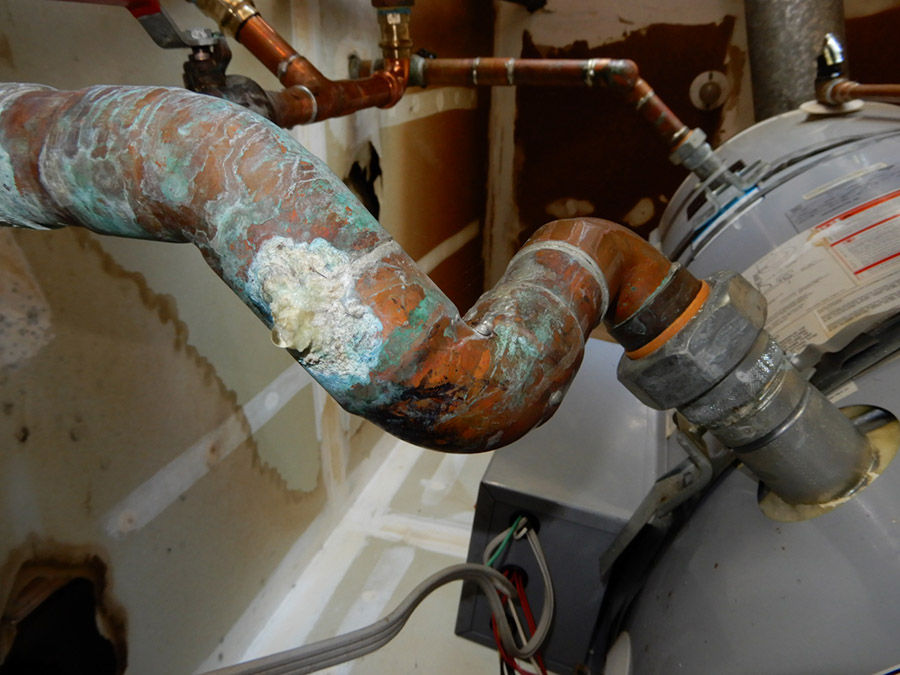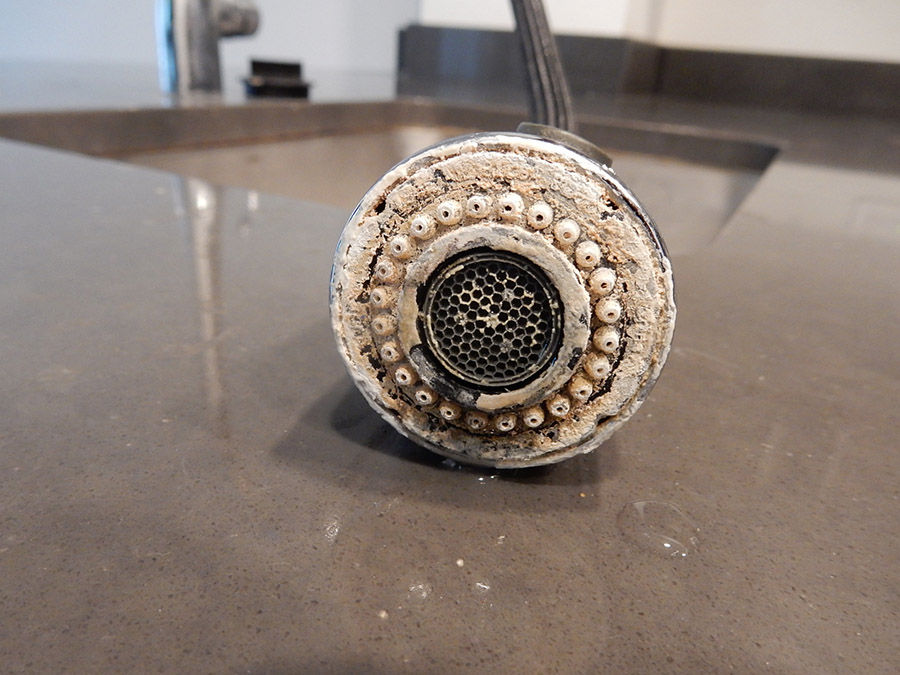Corrosion
Damage caused by pipe corrosion is often the costliest problem within a building’s plumbing system. In fact, the National Agency of Corrosion Engineers estimates that damage from corrosion costs $300 billion annually in the United States. Corrosion is the result of a complex electrochemical reaction that occurs when the metal of the pipe reacts with the oxygen and minerals in the water. All water is corrosive to some degree, but how quickly corrosion occurs depends on a variety of factors. These factors include the pH level of the water, amount of oxygen, and amount and type of minerals in the water, as well as the temperature, pressure, and velocity of the water.
Corrosion is often the culprit behind:
- Pinhole leaks and slab leaks
- Red rusty water
- Damaged water heaters and boilers
- Failing valves and pipe fittings
Left unchecked, corrosion can wreak havoc on a plumbing system and require significant costs in plumbing maintenance and repair services. Many building owners expend considerable resources repairing and replacing damaged pipes, pumps, valves, water heaters, and boilers, in addition to managing tenant complaints regarding poor water quality. Extensive corrosion can eventually require a building’s entire plumbing system to be replaced, often costing millions of dollars.
Calcium Scale Buildup
Scale is another common plumbing system problem, especially for buildings supplied with hard water (i.e., water that contains high levels of minerals, such as calcium and magnesium). In hard water, minerals precipitate out of the water and attach to the inside of pipes, valves, heating elements in water heaters and boilers, plumbing fixtures, and all water-using appliances. Over time, these scale deposits build-up, restrict flow, and cause damage. Scale deposits can also accumulate at the bottom of water heaters and boiler storage tanks. Not only does this interfere with the heating process, but it means more time and energy is required to heat the water. Scale build-up leads to the costly and time-consuming repair of pipe valves and other components, the replacing and flushing of water heaters and boiler tanks, and the unclogging of sink aerators and showerheads.
Scale buildup can cause:
- Restricted flow
- Clogged aerators and showerheads
- Inefficient water heaters and boilers
- Pipe and valve failure
ANMAC’s water treatment programs are effective against both corrosion and scale.
The cost of ANMAC’s services is easily offset by the significant savings in maintenance and repair costs when problems with corrosion and scale are reduced. In our experience, ANMAC water treatment programs regularly reduce water-related repair costs by more than 75%.




